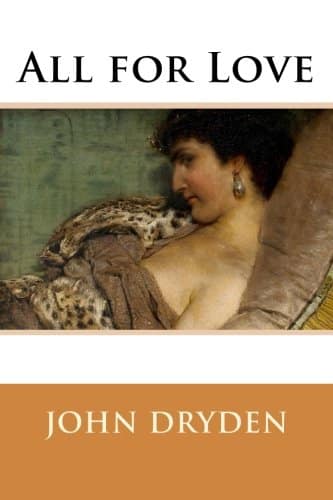Passion
Perhaps the most essential theme in the play, and what keeps Cleopatra and Antony in a magnetic pull towards one another the entire time, is passion. Both lovers feel passionate—in both a sexual and romantic sense—towards one another. Their passion for one another exceeds all reason, which keeps Cleopatra and Antony continually making poor decisions on behalf of their respective countries.
Passion, throughout the play, wins out against reason time and time again. Whenever Antony is on the brink of leaving Egypt once and for all, he is again called back by his passion for Cleopatra. Likewise, at the end, after Antony has died, Cleopatra determines that she would rather die than live under Caesar. She chooses death over life because of her passionate love for Antony.
The Political Ramifications of Love
From the start, characters gossip about the political implications that Antony and Cleopatra’s affair has had on the world. In this, we see that their personal affairs are inextricable from the political realms in which they rule. Antony’s love for Cleopatra has led him to abandon his family and his country and wreaked havoc on his political reputation.
Later in the play, Antony suggests that his success is due to his love for Cleopatra. When he believes Cleopatra is dead, he tells Ventidius, “I was but great for her; my power, my empire,/Were but my merchandise to buy her love;/And conquered kings, my factors.” This suggests that Antony’s political success was due to his desire for Cleopatra, further conflating the personal with the political.
Manipulation and Persuasion
Many characters seek to manipulate or persuade one another in different ways. Ventidius tries to persuade Antony to leave Egypt several times in the play. Dolabella and Octavia also undertake to convince him to leave Cleopatra behind. Meanwhile, Cleopatra and her attendants, particularly Alexas, seek to strategize how to keep Antony there. Time and time again, Alexas creates plots to keep Cleopatra and Antony together, manipulating information to ensure the union. Indeed, Ventidius does this also, persuading Antony that Dolabella and Cleopatra are having an affair when they are not.
Power
The play concerns two influential leaders, Antony, a Roman leader, and Cleopatra, the queen of Egypt. Both of these rulers wield a tremendous amount of power, but when the play opens, their power falters due to their affair. Cleopatra’s attendants want her to continue her affair with Antony to sustain her power over Rome. In contrast, Antony’s advisors want him to disengage from Cleopatra as he neglects his loyalty to the Roman Republic. Thus, the force that is in direct conflict with love is power and its preservation.
Jealousy
Cleopatra takes Alexas’ advice and attempts to make him jealous in a last-ditch effort to win Antony back. She judges that jealous love is not as pure as absolute love but goes along with the plan. Indeed, jealousy is a primary currency and theme in the play, especially regarding how it pertains to love. Antony is jealous of Cleopatra and Dolabella’s connection, even though Dolabella is a trusted and beloved friend. Additionally, Octavia is jealous of the love that Antony gives so freely to Cleopatra but refuses to give to her.
Death
By the play’s end, Cleopatra and Antony choose death over a life apart. Antony commits suicide under the false belief that Cleopatra is dead. Then, seeing that Antony has killed himself, Cleopatra chooses to kill herself rather than face Caesar and his potential mercy. Both characters see a world in which the other is dead as an unlivable world, so they choose death. This is tragic and romantic, the ultimate sacrifice for one’s beloved.
Duty
One of the main ways Antony’s advisors try to convince him to leave Egypt is by invoking the importance of duty. They often tell him that he needs to give up his individual romantic freedom to do what is best for Rome, but he cannot pull himself away. Octavia, his wife, visits him and pleads with him that he must return to his family. She does not claim to be able to ignite the same passion that Cleopatra does, instead suggesting that it is her duty as a wife to remain loyal to him. Throughout the play, the Roman characters invoke the importance of duty, even when Antony cannot access his own sense of obligation.

